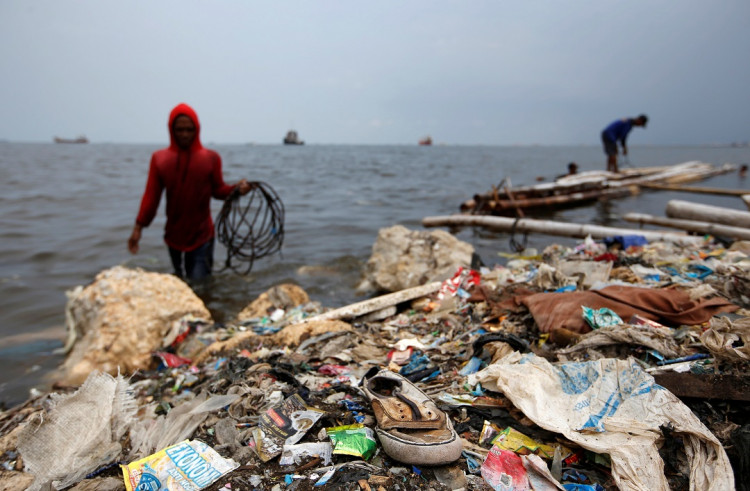A campaign to prosecute widespread environmental damage is gaining traction.
Lawyers from around the world have proposed a legal definition for a new crime that they want to see outlawed internationally: ecocide.
Ecocide, which translates literally from Greek and Latin as "killing our home," is an umbrella term for all manifestations of mass environmental devastation, ranging from industrial pollution to the dumping of microplastics into the oceans.
The definition's publication Tuesday is the first important step in a global campaign aimed at preventing environmental disasters such as the Deepwater Horizon oil spill, Amazon rainforest deforestation, and more generally, climate change.
Since 2017, the Netherlands-based Stop Ecocide Foundation has been working with a coalition of environmentalists, lawyers, and human rights campaigners to make ecocide a crime prosecutable by the International Criminal Court.
Currently, the court only prosecutes four crimes: genocide, crimes against humanity, crimes of aggression and war crimes.
"There have been working definitions in the past, but this is the first time that something has been convened globally and in response to political demand," Jojo Mehta, co-founder of the Stop Ecocide campaign, told CNBC via telephone.
"What that shows is that space is opening up in the political world to actually look at a solution like this. This conversation is no longer falling on deaf ears and, indeed, it is actually gathering momentum at quite a pace," Mehta said.
If the campaign to prosecute ecocide is successful, the international court will be able to hold those most responsible for serious environmental harms, including business and government leaders, accountable.
Supporters of the Stop Ecocide campaign said recognizing the term in international criminal law has a number of advantages. These include increased international accountability and deterrence, more access to reparations, and improved public understanding of the magnitude and extent of the ecological disaster.
According to Mehta, while ecocide law is unlikely to be sufficient to address the environmental catastrophes that have arisen in many areas, it is "necessary." She estimated that putting ecocide law into effect would take four to five years.





